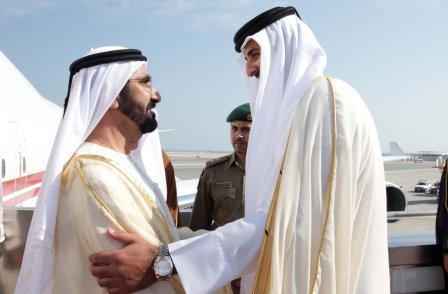
Qatar had the satisfaction of hosting the 35th Gulf Cooperation Council (GCC) Summit on December 9, which was attended by all six GCC member nations. The summit displayed impressive unity in its forward planning, which was dominated by security issues given the state of the region.
The main topic was the war against Daesh, which was confirmed as a major priority by all the members, along with a wider programme to counter radicalism.
The six states agreed to set up a joint naval command in the Gulf, which will be based in Bahrain. They also decided to establish a GCC-wide police bureau based in Abu Dhabi, which will share information on organised crime and terrorism. All members agreed that the fight against Daesh and extremism in its many forms needs an immediate military solution, as well as a long-term social and theological solution.
It was especially important that all GCC members agreed to the statement of full support for Egypt under President Abdul Fattah Al Sisi, whose crackdown on the Muslim Brotherhood had divided the GCC for months. The summit’s final statement announced the GCC’s “full support” for Al Sisi’s political programme, with Qatari Foreign Minister Khalid Al Attiyah saying: “We believe that a strong Egypt is in the interest of all Arabs, especially GCC states.”
The summit was the culmination of several months of diplomacy between Qatar and its GCC partners as they sought a better way forward with more shared thinking in their policies. The GCC summit displayed a united front, which will allow the six nations to return to more normal relations.
Economy
Over the past few years, Qatar’s economy has been doing well and looks set to grow as the country continues as one of the world’s largest producers of gas, as well as its important strategic investments in economic diversification.
These policies are beginning to reap results that, in time, will allow the country to weather the fluctuations in the price of oil and also create a wide variety of career opportunities for its small but fast-growing population.
The Ministry of Planning’s Qatar Economic Outlook sees GDP growth expanding from around 6.3 per cent this year to closer to 8 per cent in the next, with vigorous activity continuing in non-oil and gas sectors. A large spending programme on infrastructure will generate demand for cement, steel and other materials, as well as for services, while providing an important stimulus to economic activity.
Although a small country in territory and population, Qatar has one of the world’s largest proven gas reserves, making it a globally dominant power in the energy sector — a role the government would like to expand.
Oil and gas still account for more than 50 per cent of GDP, roughly 85 per cent of export earnings, and half of government revenues. Hydrocarbons have made Qatar the country with both the world’s highest per capita income and the lowest unemployment level. Proven oil reserves in excess of 25 billion barrels should enable continued output at current levels for about 57 years, while proven reserves of natural gas exceed 25 trillion cubic metres — about 13 per cent of the world total and third-largest on the planet.
Political development
Qatar has taken some important steps in developing its political institutions, which have created a forum for public debate on national issues. The former ruler, Shaikh Hamad Bin Khalifa Al Thani, introduced a series of liberalising reforms, such as elections in 1999 for the 29-member municipal council, which was the first time Qatari women were allowed to both vote and stand for office.
In 2005, Shaikh Hamad introduced a new constitution that established a Shura Council — a legislature of 30 elected members and 15 members appointed by the emir. Shaikh Tamim Bin Hamad Al Thani acceded as emir when his father abdicated in June last year and has continued his predecessor’s policies. Before becoming emir, he played a significant part in promoting Qatar as a sporting centre and in its successful bid to host the Fifa World Cup 2022.
The preparations for the tournament have accelerated large-scale infrastructure projects such as the metro system, light rail system, as well as the construction of a port, roads, stadia and related sporting infrastructure. The new Hamad International Airport, opened in April, has an annual passenger capacity of 24 million, and will go up to 50 million when complete.
Qatar has pursued an active foreign policy. It has tried to mediate in Yemen’s troubled politics by supporting a GCC initiative to try to find a way forward in what is one of the region’s most intractable problems, and played an active part alongside the UAE in supporting the international coalition that toppled Muammar Gaddafi in Libya. It has also tried to help the Afghan government broker a peace deal with those elements of the Taliban willing to consider talks.
Culture
Qatar has placed great importance on attracting a critical mass of cultural and intellectual activity into the country. It hosts the controversial Al Jazeera news channel, which has led the way in investigative reporting and comment on Arab affairs. The country also has a large number of teaching and research campuses of renowned universities such as Carnegie Mellon, Georgetown School of Foreign Service, and University College London.
This has resulted in a number of leading international thinkers and academics settling in Qatar, which, in turn, has enabled young men and women from the country, other GCC states and further afield to join and gain international exposure and academic qualifications.
Qatar also has a growing cultural scene, with the iconic Museum of Islamic Art leading the way. The remarkable building was designed by one of the world’s leading architects, I.M. Pei. It houses one of the world’s most significant collections of historic Islamic art.







